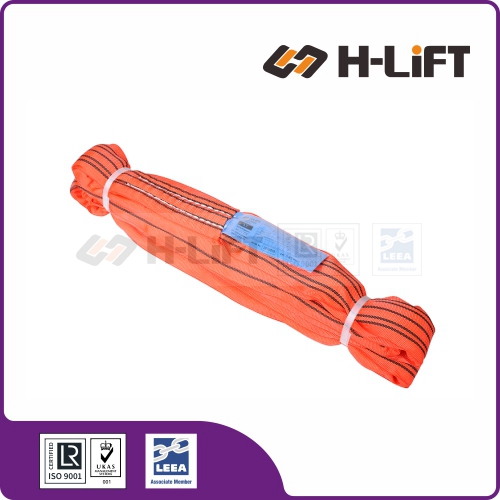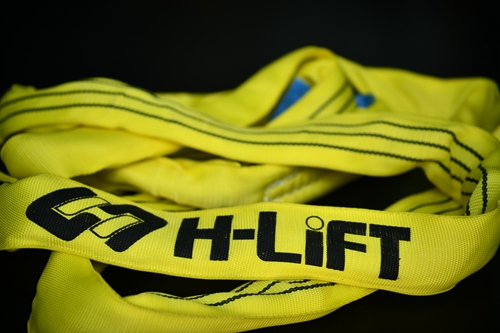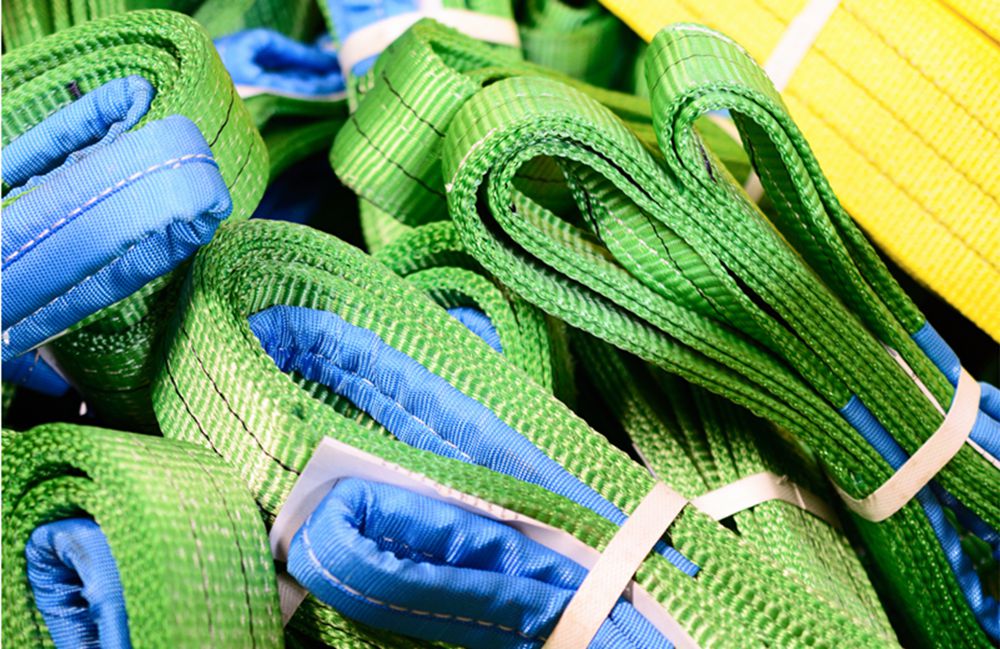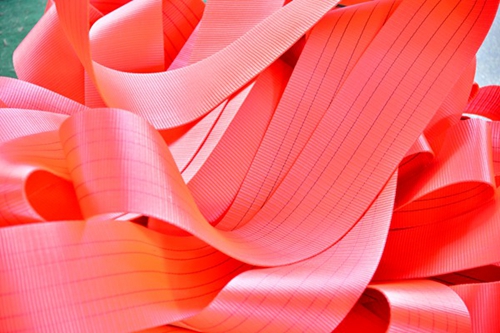ALWAYS:
• Store and handle roundslings correctly.
• Inspect roundslings and accessories before use and before placing into storage.
• Follow safe slinging practices, as given overleaf.
• Position the bight for choke lift at 120°(natural angle).
• Apply correct mode factor for the slinging arrangement.
• Use protection (to avoid cutting, friction etc) and fittings which allow the sling to form smooth radii.
NEVER:
• Attempt to shorten, knot or tie roundslings.
• Expose roundslings to direct heat or flames.
• Use roundslings at temperatures above 80°C or below 0°C without consulting the supplier.
• Expose roundslings to chemicals without consulting the supplier.
• Shock load roundslings.
• Use roundslings with cut or damaged outer covers.
• Use a sling with a missing/damaged label or illegible markings
Selecting the Correct Sling
Roundslings are available in a range of materials and sizes in endless sling form. Select the slings to be used and plan the lift taking the following into account:
Material – polyester, identified by a blue label, is resistant to moderate strength acids but is damaged by alkalis; polyamide (Nylon) identified by a green label, is virtually immune to alkalis but is damaged by acids; polypropylene, identified by a brown label, is little affected by acids or alkalis but is damaged by some solvents, tars and paints and therefore suitable for appliances where the highest resistance to chemicals other than solvents is required.
Capacity - the sling must be both long enough and strong enough for the load and the slinging method.
Apply the mode factor for the slinging method.
For use at temperatures exceeding 80°C or below 0°C refer to the supplier's instructions.
For round slings made to BS EN 1492-2:2000 + A1: 2008 * Polyester and Polymide -40ºC to 100ºC Proypropylene -40ºC to 80ºC
Ranges vary in a chemical environment, in which case the advice of the manufacturer or supplier should be sought.
If the slings are to be used in multi-leg arrangement the angle formed between the legs should not be less than 30° or greater than 90°.
If abrasion, heat generated by friction or cutting from edges or corners which may damage the sling are likely, select a sling fitted with additional protective sleeves and/or use suitable packing.
Slings with grade 8 fittings and multi-leg master links should not be used in acidic conditions. Contact with acids or acidic fumes causes embrittlement to grade 8 materials. If exposure to chemicals is likely, the manufacturer or supplier should be consulted.
Storing and Handling Roundslings
Never return wet, damaged or contaminated slings to storage. They should be cleaned with clear water and dried naturally. Never force dry roundslings.
Store roundslings by hanging on non-rusting pegs which allow the free circulation of air.
The storage area should be dry, clean, free of any contaminates and shaded from direct sunlight.
Do not alter, modify or repair a roundsling but refer such matters to a Competent Person.
NOTE: The material from which the roundsling is manufactured may be identified by the colour of the label or printing on the label: Polyester = Blue, Polyamide (Nylon) = Green, Polypropylene = Brown. The outer sleeve of the sling will also be colour coded to indicate the SWL in straight pull.
Using Roundslings Safely
Do not attempt lifting operations unless you understand the use of the equipment, the slinging procedures and the mode factors to be applied.
Do not use defective slings or accessories.
Check for correct engagement with fittings and appliances, ensuring smooth radii are formed which allow the sling to assume its naturally flattened form under load. Do not overcrowd fittings.
Position the bight for a choke lift at the natural (120°) angle to prevent friction from being generated.
Keep labels away from hooks and fittings.
Take the load steadily and avoid shock loads.
Do not leave suspended loads unattended. In an emergency cordon off the area.
In-service Inspection and Maintenance
Maintenance requirements are minimal. Roundslings may be cleaned with clear water. Remember weak chemical solutions will become increasingly stronger by evaporation
Before each use inspect roundslings and, in the event of the following defects, refer the sling to a Competent Person for thorough examination: illegible markings; damaged or cut outer cover; damaged stitching; exposed inner core; heat damage; burns; chemical damage.
















